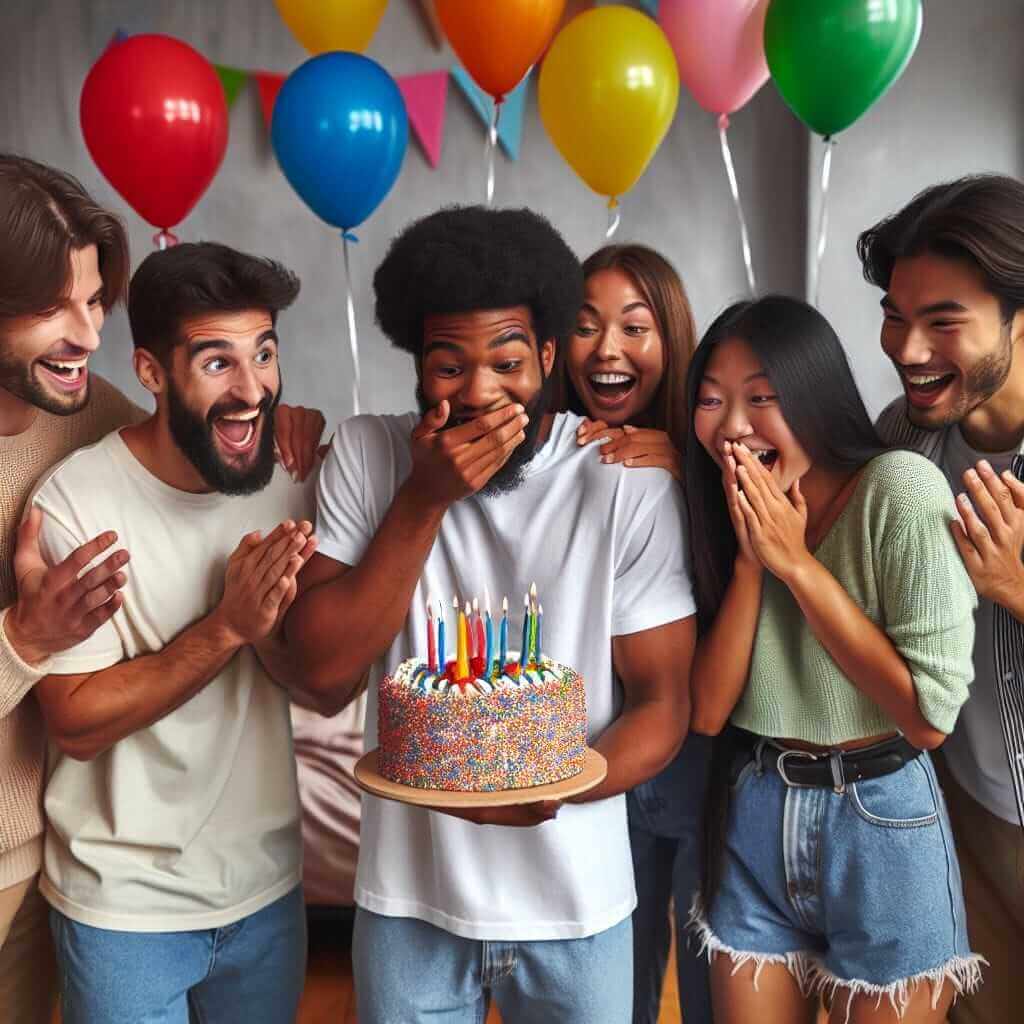The IELTS Speaking test is a critical component of the IELTS exam, designed to assess your English language proficiency in a conversational context. The test is structured into three parts: Part 1 (Introduction and Interview), Part 2 (Long Turn), and Part 3 (Two-way Discussion). As an IELTS Speaking Examiner, the emphasis is on evaluating your fluency, coherence, lexical resource, grammatical range and accuracy, and pronunciation. One commonly encountered topic is “Describe a time when you were surprised by a gift,” which can provide an excellent opportunity to showcase your speaking abilities.
Popularity of the Topic
“Surprised by a gift” is a frequent topic in the IELTS Speaking test because it covers a broad range of vocabulary and experiences, allowing candidates to demonstrate their storytelling skills and emotional expression. Let’s delve into how you can effectively tackle this topic to achieve a high score.
Part 1: Introduction and Interview
The Introduction and Interview section often includes questions that help the examiner get to know you. Here, you’ll find some common questions and exemplary answers.
Sample Questions and Answers
-
What is your favorite gift you have ever received?
- Answer: “My favorite gift was a beautifully crafted wristwatch that my parents gave me on my 18th birthday. It was a significant milestone for me, and the watch represented their love and pride for my achievements.”
-
Do you enjoy giving or receiving gifts more?
- Answer: “I actually enjoy giving gifts more because I love the feeling of making someone happy and showing them that I care. I often spend a lot of time choosing the perfect gift that I know will surprise and delight the recipient.”
Part 2: Long Turn
In Part 2, you will be given a cue card and have one minute to prepare, followed by a 2-3 minute talk on the topic.
Cue Card
“Describe a time when you were surprised by a gift.”
You should say:
- Who gave it to you
- What the gift was
- When you received it
- And explain why it was surprising
Sample Answer
“One of the most memorable times I was surprised by a gift was on my 21st birthday. My best friend, whom I’ve known since childhood, gave me this gift. She had secretly gathered all our mutual friends and planned a surprise party. During the party, she handed me a small, wrapped box. Inside, I found an exquisite necklace with a pendant that had the initials of my name engraved on it. I received this gift last summer, and it was stunning because I had never mentioned wanting such an item, making her thoughtfulness and attention to detail even more impressive. The surprise was not just the gift itself but the love and effort behind it.”
Follow-Up Questions
-
Did you get a chance to thank the giver of the gift?
- Answer: “Absolutely. I immediately thanked my friend and expressed how much the gift meant to me. Later, I also wrote her a heartfelt thank-you note to show my appreciation.”
-
How did you feel after receiving the gift?
- Answer: “I felt deeply touched and cherished. It was a significant emotional experience for me, as it reflected our strong bond and her understanding of my personality and preferences.”
Part 3: Two-way Discussion
In this section, the examiner will ask more abstract questions related to the topic you discussed in Part 2.
Example Questions and Answers
-
What is more important, the gift itself or the sentiments behind it?
- Answer: “I believe the sentiments behind the gift are far more important than the gift itself. The thought, effort, and emotion that go into choosing and giving a gift convey much deeper meanings and strengthen relationships more effectively than the material value of the gift.”
-
How do people in your country usually celebrate special occasions like birthdays?
- Answer: “In my country, birthdays are often celebrated with close family and friends. Traditional practices include cutting a cake, giving and receiving gifts, and enjoying a meal together. Recently, there has been a trend towards surprise parties and themed celebrations, reflecting a blend of modern influences and cultural traditions.”
Key Vocabulary and Structures for High Scores
- Adjectives: thoughtful, cherished, impressive, intricate, memorable
- Nouns: milestone, effort, bond, sentiment, occasion
- Verbs: appreciate, cherish, surprise, convey, represent
- Phrases: “significant milestone,” “exquisite necklace,” “attention to detail,” “emotional experience,” “strengthen relationships”
Examiner Tips
- Practice Regularly: Engaging in conversations on diverse topics will improve your fluency and confidence.
- Use a Variety of Vocabulary: Avoid repeating the same words; instead, use synonyms and diverse expressions.
- Stay Calm and Focused: Take your time to think and structure your answers. Pauses are acceptable and can be used to gather your thoughts.
- Pronunciation and Clarity: Pay attention to your pronunciation and speak clearly to ensure the examiner understands every word.
By incorporating these strategies and practicing with the provided sample answers, you can enhance your speaking skills and be well-prepared to handle any surprise topic the IELTS Speaking test throws your way.

For more information on preparing for the IELTS Speaking test, you may want to check out these helpful resources: Describe a time when you were surprised by someone, and How to reward successful people – IELTS.